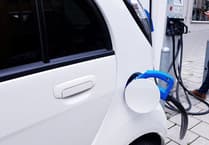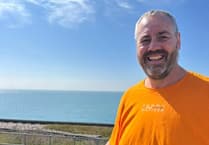PLANS to bottle Haslemere's very own spring water at Pylewell Cottage in Lower Street have suffered a major setback after the southern area development control sub-committee refused planning permission on July 23.
Despite general support for the idea, members agreed with the Highway Authority that Lower Street was too dangerous to make it feasible.
The proposal sought to build a detached, two-bay barn to house a bottling plant for natural spring water from the Pyle Well, following the demolition of the garden shed.
The business would operate to a maximum of 250,000 litres per year with deliveries of glass bottles limited to one delivery a week.
In support of the application, the applicant, André King, argued that the product would help market Haslemere and the extraction of water would benefit the Town Meadow by alleviating spring flooding.
He further argued that it would return the cottage back to its original purpose of providing local people with natural spring water bottled by hand by the local well keeper.
However, the Highway Authority said deliveries to the site could pose problems for highway safety.
In a letter submitted to the committee, the authority stated that the small lay-by directly off Lower Street, which cars use to get to the property, is close to a bend and is in the restricted part of the road, making visibility poor.
It further stated that there is no room for manoeuvring, so vehicles must either enter or exit the site in reverse gear and that deliveries made by large lorries could cause significant disruption to traffic.
Despite enthusiasm for the idea, John Robini said: "I'd love to see a local industry like this but the problem is when lorries transporting bottles from the site try to reverse there.
"The sight line is very poor and it could be extremely dangerous for anyone coming round that corner. I'm fearful there could be a very nasty accident."
His sentiments were echoed by James Mackie who said it was disappointing for those who wanted to see the industry develop in the area, but cars speeding down Lower Street made it too dangerous.
Mr Mackie suggested looking into the possibility of closing the road when a delivery is taking place and looking at traffic calming in the area.
"It is a dangerous road and even if cars do the speed limit of 30 miles per hour that is too fast anyway. Is there no way a temporary traffic control could be set up when deliveries take place?
"We should see about applying for a licence, I can't see it being a major hardship for the public."
Michael Allan also supported the idea but expressed reservations about industrial activity in a conservation area.
"It is a case of wonderful idea, wrong location, and it could be very dangerous.
"The idea of an industrial bottle plant in a conservation area does not seem right and there are listed buildings to consider."
Mr Harmer added: "You can't choose where you put your well. The cars don't even need to be speeding in that road for it to be a problem.
"I love to see industry get off the ground but we must listen to the Highway Authority. It's not often they come back to us with comments, so I think we should listen to what they say."
Previously the officers had recommended approval on a temporary basis to allow the situation to be monitored and reassessed.
They changed the recommendation to refusal after receiving the Highway Authority's letter.
The committee voted six to two in favour of the recommendation to refuse planning permission.
André King who was hoping to give people the opportunity to taste Haslemere's natural spring water for the first time in more than 100 years, this week told The Herald that he was "terribly disappointed" about the decision to refuse planning permission.
"They have misunderstood the size of the operation and missed out on a really good opportunity for Haslemere," he said.
"We are not talking about articulated lorries parking outside the cottage. There are spaces for three cars and it would be a Land Rover coming on the same basis as now," said a bemused Mr King, who is now considering an appeal.



